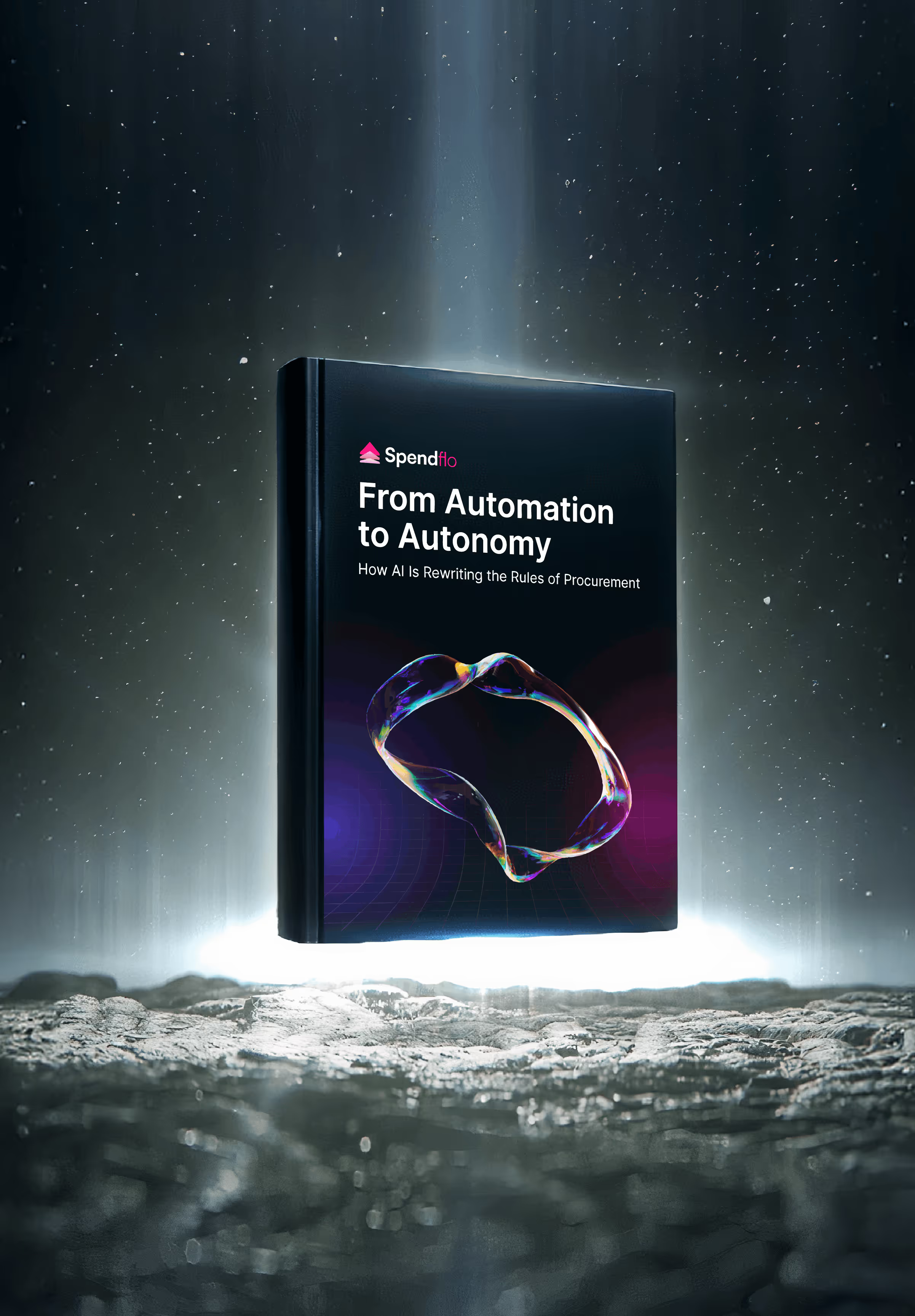

Procurement and Security: Protecting Data & Transactions

Procurement and Security: Protecting Data & Transactions
Learn how to protect procurement data, prevent cyber threats, and optimize operations with the right tools and security strategies.


Procurement is no longer just about getting the best price. In today’s digital world, every transaction carries sensitive information - supplier contracts, payment details, negotiation records, and intellectual property. A single data breach can expose a company to massive financial loss, legal trouble, and reputational damage.
That’s why procurement and security must go hand-in-hand. Protecting procurement data is not only a technical responsibility but a core business priority.
In this blog, we will cover:
- What Is Data Security?
- Why Is Data Security Important In Procurement
- Threats To Procurement Data
- Benefits Of Data Security In Procurement Systems
- Best Practices For Securing Procurement Data
- Technologies To Secure Your Procurement Data
- How Spendflo Helps with Procurement and Security
- Frequently Asked Questions on Procurement and Security
What Is Data Security?
Data security is the practice of protecting digital information from unauthorized access, corruption, or theft. It involves using technologies, policies, and processes to safeguard sensitive data, ensuring its confidentiality, integrity, and availability throughout its lifecycle in procurement systems and business transactions.
Why Is Data Security Important In Procurement
Data security is critical in procurement because it protects sensitive financial data, vendor information, and intellectual property from breaches. Strong security ensures business continuity, prevents fraud, and supports compliance with industry regulations, reducing financial, legal, and reputational risks for organizations.
Here are the reasons why data security is important in procurement:
Protecting Sensitive Vendor and Contract Data: Procurement involves handling confidential supplier agreements, pricing, and contract details. Unauthorized access to this information can compromise negotiations, expose trade secrets, and damage vendor relationships.
Preventing Financial Fraud and Payment Risks: Securing payment processes protects organizations from fraud, such as invoice manipulation or unauthorized fund transfers. Robust security measures ensure financial transactions remain accurate and tamper-proof.
Ensuring Regulatory Compliance: Many industries require strict adherence to data protection regulations like GDPR, HIPAA, and CCPA. Effective procurement data security helps organizations meet security requirements, legal obligations, and avoid costly penalties.
Safeguarding Intellectual Property and Trade Secrets: Procurement often involves proprietary designs, formulas, or technologies. Securing this information prevents competitors or malicious actors from stealing valuable intellectual property.
Maintaining Business Continuity: A data breach can disrupt business operations, delay supplies, and damage production timelines. Strong data security ensures procurement systems remain functional even during security incidents.
Threats To Procurement Data
Procurement systems are prime targets for cybercriminals due to the sensitive financial and vendor data they hold. Various internal and external threats can compromise this critical information, leading to financial losses and operational disruptions.
Cyberattacks and Hacking Attempts
Hackers target procurement platforms with cyber attacks to steal vendor data, payment information, and confidential contracts. Sophisticated attacks like ransomware and malware can lock down systems and demand hefty payouts.
Insider Threats and Employee Negligence
Employees with access to procurement systems may accidentally or intentionally expose sensitive data. Poor password hygiene, improper data handling, or malicious actions can lead to significant security breaches.
Third-Party Vendor Risks
Suppliers and service providers with weak security practices can serve as entry points for cybercriminals. A breach at a vendor’s system can indirectly expose your procurement data to attackers.
Phishing and Social Engineering Attacks
Cybercriminals often use deceptive emails or impersonate trusted contacts to trick procurement staff into revealing login credentials, payment information, or approving fraudulent transactions.
Benefits Of Data Security In Procurement Systems
Strong data security in procurement not only protects information but also delivers operational and strategic advantages. It builds a foundation of trust, compliance, and informed decision-making across the organization.
Improved Trust and Vendor Confidence: Vendors feel secure when they know their data is protected. A strong security posture strengthens supplier relationships and promotes smooth collaboration.
Reduced Financial Losses from Data Breaches: Preventing breaches minimizes the risk of financial penalties, fraud, and remediation costs. Secure systems protect against costly disruptions and legal consequences.
Better Compliance with Industry Regulations: Effective data security ensures compliance with regulatory requirements, privacy laws, and industry standards - safeguarding the organization from fines and regulatory action.
Enhanced Decision-Making through Reliable Data: Accurate and protected data enables procurement teams to make better purchasing decisions, optimize supplier management, and forecast spending with confidence.
Best Practices For Securing Procurement Data
Data security in procurement requires a proactive and multi-layered approach. By following these best practices, organizations can minimize risks, protect sensitive information, and build a resilient procurement system.
Implement Strong Access Controls
Access to procurement systems should be granted only to authorized personnel based on their roles and responsibilities. Role-based access control (RBAC) limits users to specific data and functions, reducing the risk of unauthorized access. Multi-factor authentication (MFA) and security controls add an extra layer of security by requiring users to verify their identity through multiple credentials, such as passwords and biometric scans.
Use Encryption for Data Storage and Transmission
Encryption is essential for protecting data both at rest (stored data) and in transit (data being transmitted). When procurement data is encrypted, even if hackers gain access, they cannot read or misuse the information without the decryption key. Secure Socket Layer (SSL) protocols ensure that data transferred between users and procurement platforms remains private and secure.
Conduct Regular Security Audits
Routine security audits help identify vulnerabilities and ensure compliance with organizational policies and industry regulations. Audits evaluate system configurations, user access levels, data storage practices, and incident response procedures. Third-party security and risk assessments can provide an objective evaluation of the organization’s security posture, uncovering gaps that may not be visible internally.
Provide Employee Security Training
Human error remains one of the biggest threats to procurement data security. Regular training sessions educate employees about phishing emails, password management, data handling policies, and recognizing social engineering tactics. Employees must understand the importance of safeguarding procurement data and the consequences of security lapses.
Develop an Incident Response Plan
Despite strong preventive measures, no system is entirely immune to security incidents. An incident response plan outlines the steps to be taken when a breach occurs. This includes identifying the breach, containing the threat, notifying affected parties, conducting forensic investigations, and implementing corrective actions.
Technologies To Secure Your Procurement Data
Technology plays a crucial role in enhancing procurement data security. Modern tools and platforms can automate threat detection, enforce security policies, and provide robust defenses against evolving cyber risks. Many providers also offer specialized security services that continuously monitor threats and ensure rapid response to incidents.
Procurement Security Platforms and SaaS Tools
Dedicated procurement software platforms centralize vendor data, contracts, purchase orders, and payment details in a secure environment. SaaS-based procurement tools often come equipped with built-in security features such as access controls, audit logs, and data encryption. These tools streamline procurement processes while ensuring sensitive data remains protected against internal and external threats.
Artificial Intelligence for Threat Detection
Artificial intelligence (AI) and machine learning (ML) have revolutionized cybersecurity by enabling real-time threat detection. AI-powered systems analyze procurement data patterns and user behavior to detect unusual activities that may indicate security breaches. For example, if a large, unauthorized transaction is initiated outside normal business hours, the system can immediately flag or block the action for further investigation.
Blockchain for Secure Transaction Records
Blockchain technology offers a decentralized and tamper-proof way to record procurement transactions. Blockchain also strengthens supply chain security by preventing unauthorized changes to vendor or shipment records. Each transaction is encrypted and added to a secure chain of data blocks, making it nearly impossible for attackers to alter historical records. Blockchain enhances transparency, accountability, and traceability in procurement processes, reducing the risk of fraud and data manipulation. Supply chain security can also benefit from blockchain, ensuring end-to-end protection of transactions across vendors and partners.
Cloud Security Solutions with Advanced Encryption
Many organizations rely on cloud computing and cloud-based procurement solutions for scalability and flexibility. Cloud security providers offer advanced encryption, intrusion detection systems (IDS), firewalls, and compliance monitoring tools that protect data stored and processed in the cloud. Cloud security solutions also offer redundancy and disaster recovery capabilities, ensuring that procurement data remains accessible and secure even during system failures or cyberattacks.
By combining strong security policies with advanced technologies, organizations can build a robust defense around their procurement data. This holistic approach not only reduces the risk of cyber threats but also ensures procurement teams can operate efficiently and confidently in today’s complex digital landscape. In a world where data is a critical asset, securing procurement processes is no longer optional - it’s a business imperative.
How Spendflo Helps with Procurement and Security
Spendflo simplifies procurement while ensuring your data stays secure. Its centralized platform consolidates vendor contracts, payment records, and procurement workflows under strong security protocols. Spendflo uses advanced encryption, strict access controls, and real-time monitoring to protect sensitive data from unauthorized access. Automated approval workflows reduce manual errors and prevent fraud, while Spendflo’s expert negotiation team ensures cost-effective, compliant vendor agreements. By integrating security into every step of the procurement process, Spendflo enables businesses to optimize spending, improve vendor relationships, and maintain full visibility into procurement data - all while safeguarding against financial and reputational risks.
Frequently Asked Questions on Procurement and Security
What are the benefits of securing procurement data?
Securing procurement data protects sensitive financial, vendor, and contract information from breaches. It reduces financial losses, ensures regulatory compliance, builds vendor trust, and enables accurate, data-driven decision-making, helping businesses avoid disruptions and reputational damage.
How can procurement data security be automated?
Automation tools encrypt data, manage access controls, monitor user activities, and detect anomalies in real-time. AI-powered platforms can identify suspicious behavior, automate compliance checks, and trigger alerts or corrective actions before security incidents escalate.
What are key factors to consider in procurement and security?
Key factors include robust access controls, data encryption, vendor risk management, employee training, compliance with regulations, and continuous monitoring of systems. A holistic approach ensures comprehensive protection against internal and external threats.
How often should procurement data security be reviewed?
Procurement data security should be reviewed at least quarterly. Regular audits help identify vulnerabilities, ensure compliance, and update security protocols to address emerging threats and evolving regulations.
What challenges arise when securing procurement systems?
Challenges include managing third-party risks, preventing insider threats, addressing complex compliance requirements, training employees on security best practices, and adapting to rapidly evolving cyber threats targeting procurement platforms.










.png)





.png)
.png)















